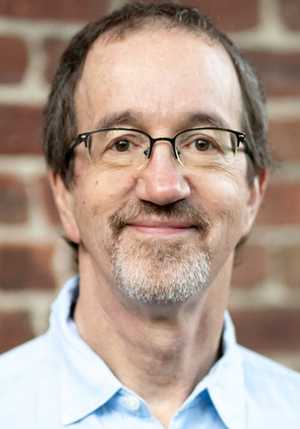Today, we are happy to bring you our conversation with David M. Poole, author of Trusted Source: How a Virginia Nonprofit Gained Bipartisan Support in an Era of Political Polarization
What inspired you to write this book?
I learned that nothing inspires quite like a generous severance. After I retired from VPAP, the board kept me on the payroll for six months. Chairman Bill Leighty suggested I spend the time writing the VPAP story. “Not one knows the history better than you,” he said. Later, I was encouraged by University of Virginia editor Nadine Zimmerli to reach beyond a standard organizational history and show how VPAP addressed two critical challenges facing our great democratic experiment.
What are you hoping readers will learn from your book?
My hope is the book works on a couple of different levels. I think political junkies who know the website will have fun learning about the unexpected and sometimes random ways that VPAP’s suite of online tools came to be. On a deeper level, people will come to understand how VPAP gained trust at a time of deep polarization. And they’ll see how we developed a nonprofit business model to support paywall-free political information when newspapers were becoming a shell of themselves. My biggest hope is that readers come away with a greater understanding of how none of us—regardless of our politics--can afford to take virtues like trust and accuracy for granted.
What surprised you the most in the process of writing your book?
As I note in the book’s introduction, writing Trusted Source was an education in the shape-shifting nature of memory. In documenting a quarter century of my life, I learned how the mind can play games with us to fit our notions of self. The biggest surprise the difficulty in trying to remember what my motivations at various points in time. Mostly I was running scared. I had escaped the newspaper industry just before it imploded. Professionally, there was no turning back. I was determined to be the last guy standing. I didn’t intend to make a big fuss out of accuracy and fair play; that was just something I had been trained to do. But after technology and political divisions combined to erode faith in our institutions, the trust piece clicked into place.
What’s your favorite anecdote from your book?
The most telling anecdote is from early 1998, when I sat down in front of a computer monitor with House Republican leader Vance Wilkins to introduce him to our recently launched campaign website. I’ve told the story countless times, but it never fails to deliver a gut punch as to why Virginians deserved a better way to know who was giving to whom. The episode is a key moment in the VPAP creation story, but it clearly made a bigger impression on me than on Wilkins. In January 2023, I visited him at his home in Amherst. We did a lot of reminiscing, but Wilkins, then 86, couldn’t recall the anecdote.
What’s next?
That’s hard to say. In many ways, VPAP spoiled me. It was a job that I loved, that made a real difference and that paid me more than I could have ever earned as a reporter. I doubt I’ll ever be lucky to find an opportunity that hits all three. I’m trying to decide what’s next for me. I’ve regained my love of writing. But I hear the siren call of the crisis in local journalism. I’d like to put what I learned at VPAP to work in helping stabilize Virginia’s news ecosystem. I think everyone can agree that an informed electorate is essential if our great experiment in representative democracy is to endure.





